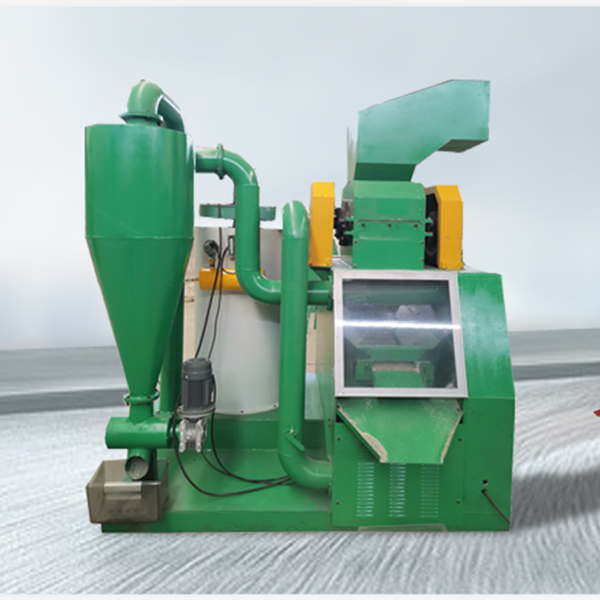

ನವೆಂ . 09, 2024 17:32 Back to list
How to Dispose of Electronics Responsibly
In an age where technology is constantly evolving, it's common to find ourselves with outdated or broken electronic devices. From smartphones and laptops to televisions and printers, electronic waste—or e-waste—has become one of the fastest-growing waste streams globally. However, properly disposing of electronics is crucial for environmental sustainability and personal safety. This article outlines various responsible methods for disposing of electronics.
Understanding E-Waste
Before exploring disposal methods, it's essential to understand what e-waste is. E-waste refers to discarded electrical or electronic devices, which may contain harmful substances like lead, cadmium, and mercury. These toxic materials can leach into the environment, posing risks to both wildlife and human health. Therefore, it's vital to handle e-waste with care and to utilize appropriate disposal methods to minimize risks.
Local Regulations and Certified Programs
The first step in responsibly disposing of electronics is to consult local regulations regarding e-waste. Many regions have specific laws and guidelines that govern electronic disposal. These regulations may require certain types of electronics to be recycled or disposed of through certified programs.
Many cities and counties offer special e-waste collection events or permanent drop-off locations where consumers can safely dispose of their old electronics. Additionally, look for certified e-waste recycling programs that adhere to strict environmental standards. Organizations like the Responsible Recycling (R2) Certification and the e-Stewards program provide guidelines for environmentally and socially responsible recycling practices.
Recycling Your Electronics
Recycling is one of the most effective ways to dispose of electronics. Many manufacturers and retailers have take-back programs that allow consumers to return old devices for recycling. Companies like Apple, Dell, and Best Buy have established initiatives that ensure proper recycling and recovery of valuable materials from your old devices. Participating in such programs not only aids in recycling but also supports the circular economy, where materials are continuously reused instead of discarded.

Donation and Reuse
If your electronics are still functional, consider donating them instead of throwing them away. Many charities and organizations accept working devices, which can be refurbished and given a second life. Nonprofits such as Goodwill or local shelters often welcome donations of electronics that can benefit the community. Schools and educational institutions may also seek donations for their programs.
When donating, ensure that you erase all personal data from the devices. This step is critical to protect your privacy and prevent identity theft. You can use data-wiping software or factory reset the device to eliminate personal information.
Trade-In Programs
Another option for disposing of electronics is to take advantage of trade-in programs offered by various retailers. Many companies provide store credit or discounts for old devices, which can be an added incentive to upgrade responsibly. For example, smartphone carriers and retailers often promote trade-in offers for customers looking to purchase new devices. This approach not only benefits you financially but also ensures that the old devices are handled professionally.
Proper Disposal for Hazardous Materials
For electronics that cannot be reused or recycled, such as broken screens or non-functioning appliances, it is crucial to dispose of them properly. Do not simply throw e-waste in regular trash bins, as this can lead to environmental hazards. Many communities have hazardous waste disposal facilities where you can take items that cannot be recycled. Always check with your local waste management authority for guidelines on disposing of specific items.
Conclusion
As technology continues to advance, the volume of electronic waste will undoubtedly increase. Responsible disposal of electronics is not only an ethical obligation but also a necessity for protecting our environment. By following local regulations, recycling, donating, or utilizing trade-in programs, you can play an essential role in reducing e-waste and promoting sustainable practices. Make a conscious effort to think about how you dispose of your electronics, and encourage others to do the same for a healthier planet.
Latest news
The Future of Metal Recycling: Revolutionizing Waste Management
NewsMay.14,2025
Optimizing Waste with Recycling Lines
NewsMay.14,2025
Municipal Solid Waste Sorting Line: Revolutionizing Waste Management
NewsMay.14,2025
Metal Shredders: Essential Tools for Efficient Recycling
NewsMay.14,2025
Maximize Your Profits with a Copper Wire Granulator
NewsMay.14,2025
Home Metal Shredder: A Smart Choice for Your Home Recycling Needs
NewsMay.14,2025